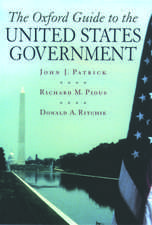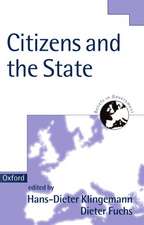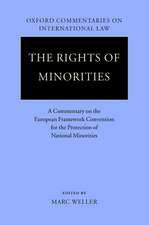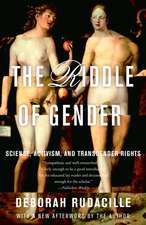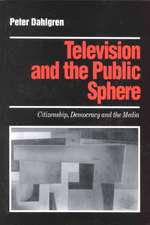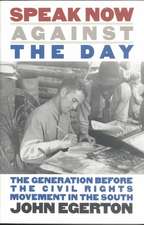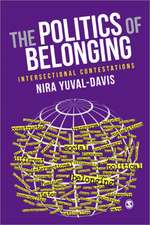Public-Spirited Citizenship: Leadership and Good Government in the United States
Autor Ralph Ketchamen Limba Engleză Hardback – 30 aug 2015
All of the nation's founders, especially Adams, Jefferson, Franklin, and Madison, addressed the question of whether and how a citizen can make a difference in the American political process. This concern harkens back even farther, to Locke, Erasmus, and Aristotle. Today, one obstacle to good citizenship is the social scientific turn in political science. Leaders in civic education in the twentieth century eschewed grand ideas and moral principles in favour of a focus on behaviourism and competitive, liberal politics. Another problem is the growing belief that the government has no business promoting the public good through the support of religious, educational, or cultural efforts.
Ralph Ketcham vividly depicts the relationship of private self-interest and public-spirited action as these pertain to citizenship and good government. This is an enlightening book for the general reader, as well as for students, professional social scientists, and political philosophers.
Preț: 764.20 lei
Preț vechi: 1102.79 lei
-31% Nou
Puncte Express: 1146
Preț estimativ în valută:
146.25€ • 158.80$ • 122.85£
146.25€ • 158.80$ • 122.85£
Carte tipărită la comandă
Livrare economică 22 aprilie-06 mai
Preluare comenzi: 021 569.72.76
Specificații
ISBN-13: 9781412856720
ISBN-10: 1412856728
Pagini: 264
Dimensiuni: 152 x 229 x 23 mm
Greutate: 0.45 kg
Ediția:1
Editura: Taylor & Francis
Colecția Routledge
Locul publicării:Oxford, United Kingdom
ISBN-10: 1412856728
Pagini: 264
Dimensiuni: 152 x 229 x 23 mm
Greutate: 0.45 kg
Ediția:1
Editura: Taylor & Francis
Colecția Routledge
Locul publicării:Oxford, United Kingdom
Cuprins
1 Introduction
A. The Problem of Modern Politics: Rational Choice or Public-Spirited Citizenship
B. Human Nature in Good and Bad Citizenship
2 Premodern Ideas of Good Government and Citizenship
A. Founding Era Conceptions and Revolutionary Sentiments
B. Republican Leadership and Citizenship
C. The Constitution and the Public Good
3 Citizenship and Moral Philosophy in the Nineteenth Century
A. Liberal Education
B. Civic Education
C. Freedom of Conscience and Citizenship
D. Tocqueville on Religion in America
E. Moral Philosophy in the Nineteenth Century
4 Political Science, the Reconstruction of Citizenship, and the Nature of Government in the Twentieth Century
A. Learning, Leadership, and Good Government 93
B. The American Political Science Association and the Flood Tide of Darwinian Science
C. The Scientific Study of Politics and the Making of Citizens, 1921–1935
D. The Rise of Public Administration and the Triumph of Behaviorism, 1933–1953
E. Empirical Studies and "The Tragedy of Political Science," 1953–2006
5 Counterpoints to Conflict-of-Interest Politics and to Minimal Citizenship
A. East Asian Versions of Citizenship and Good Government
B. Comparison and Critique of Aristotelian, Jeffersonian, and Modern Political Ideas
6 Citizenship, the "Influence of Norms," and the Public Good
A. The Madisonian Constitution in 2000
B. The Supreme Court on Religion and Politics: on Church and State
7 Public-Spirited Citizenship
A. The Idea of the Public Good in the Twenty-First Century
B. Revival of Public Spirit
Appendix: The Maxwell School and Citizenship, 1924–2012
A. George Maxwell and Upbuilding the Foundations and Bulwarks of Citizenship
B. Dean William Mosher, Responsible Citizenship, and "The Scientific Study of Politics," 1924–1931
C. Mosher's Responsible Citizenship Flourishes and Fades, 1931–1947
D. "What Should Be" Citizenship in the Stuart Brown Era, 1947–1960
E. "What Is" Studies Prevail, 1960–1980
F. Responsible Citizenship Revived at Maxwell, 1980–2011
Index
A. The Problem of Modern Politics: Rational Choice or Public-Spirited Citizenship
B. Human Nature in Good and Bad Citizenship
2 Premodern Ideas of Good Government and Citizenship
A. Founding Era Conceptions and Revolutionary Sentiments
B. Republican Leadership and Citizenship
C. The Constitution and the Public Good
3 Citizenship and Moral Philosophy in the Nineteenth Century
A. Liberal Education
B. Civic Education
C. Freedom of Conscience and Citizenship
D. Tocqueville on Religion in America
E. Moral Philosophy in the Nineteenth Century
4 Political Science, the Reconstruction of Citizenship, and the Nature of Government in the Twentieth Century
A. Learning, Leadership, and Good Government 93
B. The American Political Science Association and the Flood Tide of Darwinian Science
C. The Scientific Study of Politics and the Making of Citizens, 1921–1935
D. The Rise of Public Administration and the Triumph of Behaviorism, 1933–1953
E. Empirical Studies and "The Tragedy of Political Science," 1953–2006
5 Counterpoints to Conflict-of-Interest Politics and to Minimal Citizenship
A. East Asian Versions of Citizenship and Good Government
B. Comparison and Critique of Aristotelian, Jeffersonian, and Modern Political Ideas
6 Citizenship, the "Influence of Norms," and the Public Good
A. The Madisonian Constitution in 2000
B. The Supreme Court on Religion and Politics: on Church and State
7 Public-Spirited Citizenship
A. The Idea of the Public Good in the Twenty-First Century
B. Revival of Public Spirit
Appendix: The Maxwell School and Citizenship, 1924–2012
A. George Maxwell and Upbuilding the Foundations and Bulwarks of Citizenship
B. Dean William Mosher, Responsible Citizenship, and "The Scientific Study of Politics," 1924–1931
C. Mosher's Responsible Citizenship Flourishes and Fades, 1931–1947
D. "What Should Be" Citizenship in the Stuart Brown Era, 1947–1960
E. "What Is" Studies Prevail, 1960–1980
F. Responsible Citizenship Revived at Maxwell, 1980–2011
Index
Descriere
Any searching look at the theory and practice of citizenship in the United States today is bewildering and disconcerting

